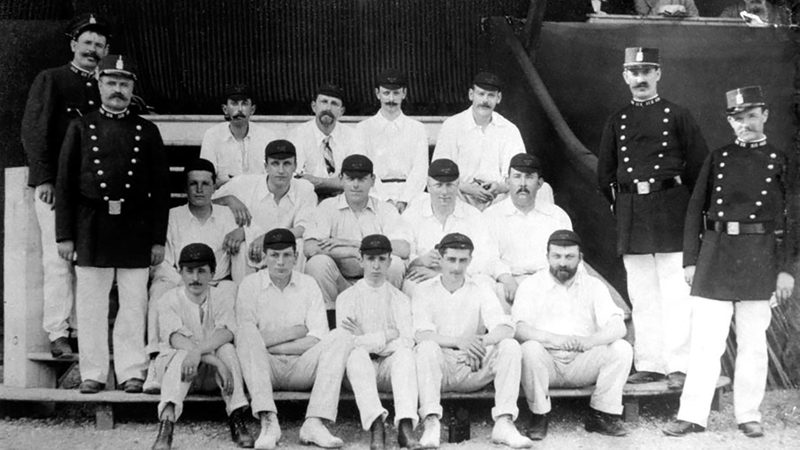
Cricket in Olympics has gathered a lot of traction of late, with the sole reason being its possible inclusion in the 2028 edition of the tournament. But for those who are unaware of its little-known existence in the Olympics, the sport, once, was indeed a part of the tournament.
On this day, exactly 119 years back, the first – and till date the only – cricket match in the Olympics commenced at the Vélodrome de Vincennes in France. Initially scheduled for the likes of Belgium, the Netherlands, Great Britain and the hosts, France, Belgium and the Netherlands pulled out later for not having a cricket team. The contest was eventually played between the hosts and Great Britain.
Initial plan:
August 4 – 5: France versus Belgium
August 11 – 12: France versus Netherlands
August 19 – 20: France versus Great Britain
Both France and Great Britain however weren’t the official teams, as the latter was rather a touring club (Devon & Somerset Wanderers, formed by William Donne in 1894), while the latter was mainly comprised of British labourers working in France for the development of Eiffel Tower.
 Olympics 1900 poster (Twitter / Cricketopia)
Olympics 1900 poster (Twitter / Cricketopia)Batting first, Great Britain put up 117 on board with Frederick Cuming high scoring for the team with 38 runs. For the hosts, William Anderson scalped four wickets while the likes of William Attril, Arthur MacEvoy and Douglas Robinson got two each.
As the French came out to bat, a bowling brilliance from Staffordshire bowler Frederick Christian, who picked seven wickets, bowled them out for just 78, with as many as nine players registering single digit figures (five went for a duck).
Bails were called after Braid was run out.
Coming into the bat for the second innings (on Day 2, August 20), half centuries from Charles Beachcroft and Alfred Bowerman set hosts a target of 185. In turn, a seven-wicket haul from Montagu Toller bowled the hosts out for a mere 26.
And this is how the game concluded. Great Britain won by 158 runs.
Surprisingly, the winners were awarded silver medals, while France received bronze, while also receiving miniature replicas of the then 11-year-old Eiffel Tower. It wasn’t until 1912 that the game was formally recognised as being an Olympic contest and the medals were reassigned as gold and silver respectively.
Gold
Great Britain: Beachy Beachcroft (c), Arthur Birkett, John Symes, Frederick Cuming, Montagu Toller, Alfred Bowerman, Alfred Powlesland, William Donne, Frederick Christian, George Buckley, Francis Burchell, Harry Corner.
Silver
France: Philip Tomalin (c), Timothée Jordan, Arthur Schneidau, Robert Horne, Henry Terry, F Roques, William Andersen, Douglas Robinson, William Atrill, W Browning, Arthur McEvoy, J Braid.
Feature image courtesy: Khela.co






















